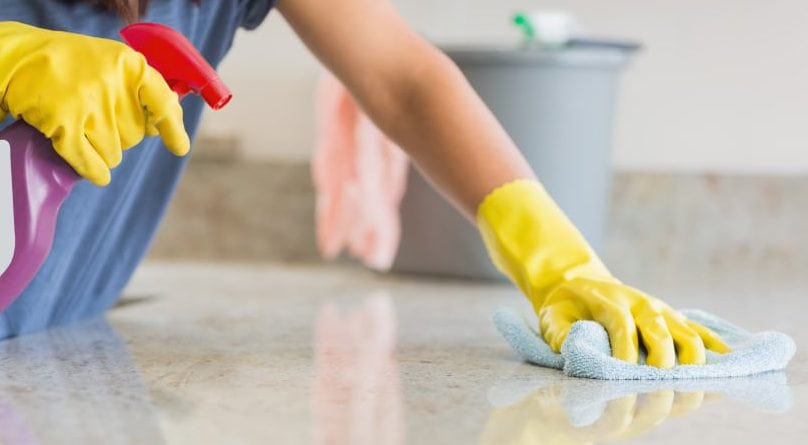How to clean the kitchen countertops?

- Posted on
- admin
Countertop in your kitchen
Your kitchen counter is literally the workhorse of the kitchen. Even on the days you do not do any cooking, you probably use your counter. It is where you plop down mail of the day. It is where you stand while you are waiting for the coffee to brew. It is where you unpack groceries. How do I know that? Because I do the same thing. So, I exaclty know how important it is to take care of my countertop. I want it to look the best all the time. And I know that you want the same thing when it come to your countertop.
How to clean your kitchen counter?
When it comes to cleaning your kitchen counters, one method does not fit all. It depends on the material from which your countertop is made of. I want to help you discover how to clean countertops and keep them in top shape. Here are some thing that may help you:
- Granite countertop
Acidic cleaning products and anything vinegar-based can damage granite, so only use warm water, a conservative amount of soap and a wet sponge or soft cloth to clean the surface.
- Wood countertop
Wood is easily damaged, so try to wipe up all spills quickly to prevent stains and keep countertops as dry as possible. To get rid of odors that are absorbed by wooden countertops, rub the surface with a slice of lemon and remove stains with a solution of 1/4 cup chlorine bleach in 1 quart warm water. Rinse, dry and coat with oil.
- Stainless steel countertop
To keep stainless steel clean, regularly wash the surface with warm water and a small amount of baking soda. Always thoroughly dry your countertops after cleaning to prevent water spots.
- Concrete countertop
To clean concrete surfaces, use a mixture of vinegar and water, and always avoid abrasive soaps and cleaning solutions containing harsh chemicals.
- Marble countertop
Treat marble with a special stone sealer to reduce its porosity, and wipe up wine, fruit juice and other acidic food spills immediately to prevent permanent surface etching.



